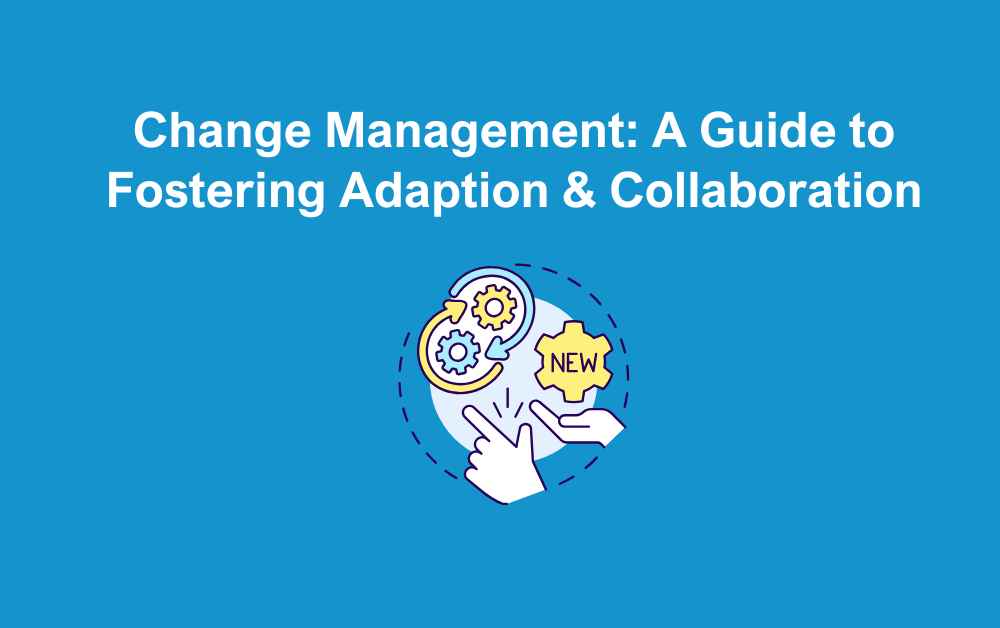Change is an inevitable and essential aspect of organisational growth. However, when staff are resisting to change management, this can be a daunting challenge for leaders. When employees cling to established routines and resist new approaches, it can hinder progress and innovation.
This blog aims to provide practical strategies and insights on how to effectively address staff resistance to change while fostering a collaborative work environment.
Jump to Section:
- What is Change Management?
- What is HR’s Role in Change Management?
- Top Tips for Successful Change Management
- Conclusion
- Contact Us
What is Change Management?
Change management is when an organisation looks at efficient ways to transition teams, processes, and organisations in general from a current state to a desired future state. It involves planning, implementing, and sustaining change by addressing the people side of transformation, ensuring that employees understand, accept, and adopt new processes, technologies, or cultural shifts. Effective change management requires clear communication, leadership support, stakeholder engagement, and training to minimise resistance and maximise the benefits of change. By fostering a positive and adaptable mindset, organisations can improve efficiency, competitiveness, and long-term success in an ever-evolving business environment.
What is HR’s Role in Change Management?
When it comes to change management, HR acts as a bridge between management and employees. This is to ensure a smooth transition during organisational change. Their responsibilities include communicating the vision and purpose of the change, addressing employee concerns, and fostering engagement to reduce resistance. HR also develops and delivers training programmes to equip employees with the necessary skills and knowledge to adapt to new processes or structures. Additionally, they support leadership in managing the human impact of change, ensuring alignment with company culture and values.
Through strategic workforce planning, HR helps minimise disruption, maintain morale, and promote a positive workplace culture, ultimately driving the success of change initiatives.
Top Tips for Successful Change Management
Legal Compliance
It’s important to ensure your planned changes comply with current employment law. This includes employment contracts, or policy changes. It’s important to well-document all changes made to protect yourself from future audits or legal challenges.
Promote Open Communication
Clear and transparent communication is crucial when introducing updates. Engage your staff by explaining the reasons behind the proposed changes, emphasising the benefits and addressing any concerns. Actively listen to their feedback and create opportunities for open dialogue. By involving employees in the decision-making process, you can increase their sense of ownership and reduce resistance. Communication is a key part to successful change management.
Provide Context and Vision
One of the most important aspects of change management is providing context. Help your staff understand the bigger picture and long-term vision of the organisation. Communicate how the proposed changes align with the company’s goals and values. By highlighting the positive impact of the changes on individual roles, team dynamics, and overall performance, you can create a sense of purpose and motivation to embrace change.
Offer Training to Foster a Culture of Learning
Emphasise the importance of personal and professional growth. Offer training programs, workshops, or mentoring opportunities to equip employees with the necessary skills to adapt to the changing environment. Encourage a growth mindset where employees see change management efforts as an opportunity for development rather than a threat to their expertise. Recognise and reward employees who actively embrace change and demonstrate a willingness to learn.
Address Fear and Uncertainty
Resistance to change often stems from fear of the unknown or uncertainty about the future. Acknowledge these concerns and provide reassurance. Offer support mechanisms, such as coaching, to help employees navigate the challenges associated with change. Keep lines of communication open and provide regular updates to address any emerging concerns and build trust.
Lead by Example
As a leader, your actions speak louder than words. Demonstrate your own openness to change and model the behaviour you wish to see in your staff. As part of your change management efforts, be adaptable, flexible, and willing to take calculated risks. By showcasing your confidence in the change process and illustrating the benefits, you inspire others to follow suit.
Encourage Collaboration and Autonomy
Create opportunities for collaboration and encourage staff to contribute their ideas and suggestions. When employees feel valued and included, they are more likely to embrace change. Allow them some autonomy in implementing the changes by providing guidelines rather than strict instructions. This way, they can adapt and find creative solutions while maintaining a sense of ownership.
Monitor and Evaluate Progress
Regularly assess the progress of the change management initiative and gather feedback from employees. Implement a feedback loop to address any challenges or resistance that arise. Recognise and celebrate small victories along the way to maintain momentum and motivation. Adjust the change strategy as needed based on insights gained from monitoring and evaluation.
Conclusion
Managing staff resistance to change requires a proactive and empathetic approach. By promoting open communication, providing context, and fostering a culture of learning, you can create an environment where employees are more willing to embrace change. Addressing fears and uncertainties, leading by example, encouraging collaboration, and monitoring progress are essential elements of a successful change management strategy. Remember, change is a journey, and by empowering your staff, you can transform resistance into a catalyst for growth and innovation within your organisation.
Contact Us
If you would like support with change management in your business, contact our HR Consultants now.







